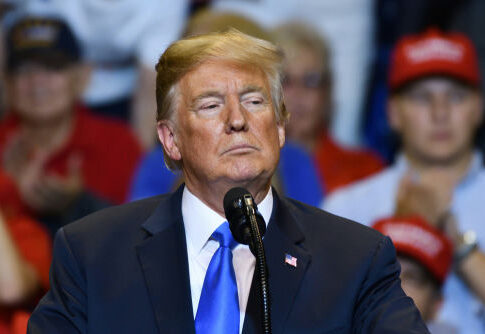President Trump’s unprecedented order for military action against Latin American drug cartels has ignited fierce legal, diplomatic, and constitutional debates—while signaling a seismic shift in how America confronts threats at its borders.
Trump’s Directive Blurs the Line Between Policing and Warfare
On August 8, 2025, President Trump signed a directive empowering the U.S. Department of Defense to launch military operations against Latin American drug cartels both on the high seas and, for the first time, on foreign soil. The move marks the first known instance of a U.S. president openly deploying the military against criminal organizations outside declared war zones. With the stroke of a pen, longstanding boundaries between law enforcement and military action have been redrawn. The $50 million bounty on Venezuelan President Nicolás Maduro—accused of heading a sprawling trafficking network—underscores the administration’s willingness to target not just criminal groups but sitting foreign leaders, a step virtually unheard of in modern U.S. foreign policy.
Trump’s action fulfills a core 2024 campaign promise: to crack down on cartels fueling America’s fentanyl and opioid crisis and to restore border security after years of what supporters called lax, “woke” policies. In January 2025, the administration formally designated leading cartels and affiliates as Foreign Terrorist Organizations and Specially Designated Global Terrorists, laying the legal groundwork for military engagement. This escalation comes amidst growing frustration among conservative Americans over surging drug deaths, border chaos, and perceived government inaction. The Pentagon, now tasked with operationalizing the order, faces complex legal and logistical hurdles—especially as Mexico and Venezuela protest what they call violations of national sovereignty. Diplomatic fallout has already begun, and the risk of intensified violence in cartel strongholds is real.
Legal and Diplomatic Ramifications of U.S. Military Engagement
The directive has immediately triggered intense debate over constitutional authority and international law. Legal scholars warn that launching military strikes without explicit congressional approval may exceed presidential powers, raising concerns about setting dangerous precedents. The administration argues such measures are vital for national security, citing the cartels’ role in trafficking deadly narcotics and undermining U.S. communities. However, critics—including some members of Congress and international allies—caution that bypassing established legal channels and targeting entities within sovereign nations may invite retaliatory measures or even destabilize regional relationships. The absence of clear operational details leaves many wondering how far the military will go and what checks, if any, will be in place to prevent civilian harm or “mission creep.”
Diplomatic tensions are mounting, particularly with Mexico and Venezuela, whose leaders have condemned the U.S. directive as a direct threat to their sovereignty and internal stability. These governments face mounting internal pressures as well, caught between resisting American intervention and confronting the entrenched power of criminal organizations. Meanwhile, human rights groups warn that military operations risk collateral damage to civilians living in cartel-controlled areas, potentially worsening the humanitarian crisis already gripping parts of Latin America.
Broad Impact and Divided Expert Perspectives
The potential impact of Trump’s order extends far beyond immediate security operations. In the short term, the prospect of U.S. military action has raised fears of escalating violence and disruptive supply shocks in the illegal drug trade. Some security analysts believe only decisive force can break the grip of powerful cartels, arguing that traditional law enforcement approaches have failed. Others note that past militarized campaigns in the region, such as Mexico’s own offensives, have often fueled further violence and instability rather than delivering lasting results.
Long-term, the move could reshape U.S. relations with Latin America and alter the global standard for responding to transnational criminal threats. Designating cartels as terrorist organizations blurs the line between crime and war, complicating legal frameworks and operational protocols. Critics warn that this strategy risks eroding international norms, undermining America’s diplomatic credibility, and exposing U.S. interests abroad to new dangers. The lack of confirmed military strikes as of August 8, 2025, reflects both the caution and uncertainty surrounding the initiative; operational planning is underway, but the scope and duration remain closely guarded.
Breaking: Trump orders Pentagon to fight drug cartels: Report https://t.co/fn5AVgnoh2
— John Solomon (@jsolomonReports) August 8, 2025
For American conservatives, Trump’s bold policy is seen as a long-overdue assertion of constitutional government and national sovereignty—one that confronts the cartels and their enablers head on, after years of government overreach, border failure, and globalist appeasement. Yet the challenges ahead are formidable, requiring vigilance to ensure that constitutional principles and U.S. values are not sacrificed in the pursuit of security.

